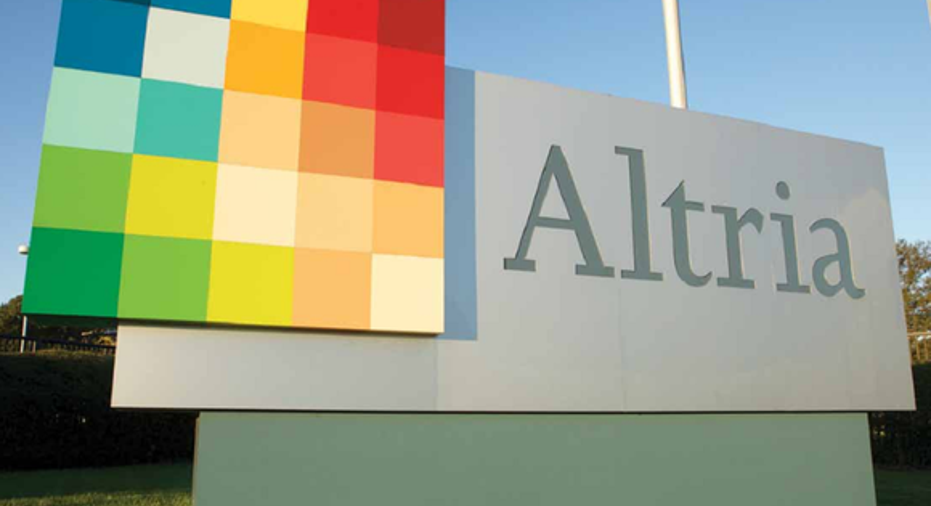Better Buy: Altria Group Inc. vs. Verizon

Image source: Altria.
Investors seeking income like high-yielding dividend stocks, and both Altria Group (NYSE: MO) and Verizon Communications (NYSE: VZ) consistently rank among the top yielders in the blue-chip stock world. The two businesses don't have a lot in common, but one thing they share is that they both produce ample cash flow, and they have both decided to return much of that available cash to shareholders through dividends. Yet with competitive challenges facing both companies, investors want to know which one makes a better stock pick right now. Let's look more closely at Altria and Verizon, comparing them on a number of metrics to see which one looks more attractive right now.
Stock performance and valuation
Both Altria and Verizon have done extremely well over the past year, and although the cigarette maker has a slight lead, the telecom giant has done a good job of catching up in recent months. Altria's gain of 30% beats Verizon's total return of about 24% since Sept. 2015, but both have dramatically outperformed the market's smaller rise.
One way in which Altria and Verizon are quite different is in how market participants assign values to their stocks. Using simple valuation metrics based on trailing earnings, the disparity between the two companies is quite clear. Altria currently trades with a trailing earnings multiple of 23, compared to just 15 for Verizon. Those two numbers have converged slightly in recent months, but they still give a big lead to Verizon.
In addition, when you take near-term growth projections into account, Verizon still maintains its lead. Verizon's forward earnings multiple of 13 is far cheaper than Altria, which trades closer to 20 times forward earnings. The lower valuation that Verizon sports here gives it the nod in this category over Altria.
Dividends
Many investors in Altria and Verizon focus almost solely on dividends, and current yield is the first thing that many people look at. Here, Verizon has built up a lead, paying a dividend yield of 4.4%. Altria weighs in at 3.7%, which is also respectable and has risen slightly in recent months.
One trend that investors have seen lately is that payout ratios for the two stocks have gotten closer together. Verizon's payout ratio has risen from around 50% into the 60% to 65% range. Altria, meanwhile, has seen its payout ratio stay between 75% to 80%. That still leaves Verizon with more room to consider dividend increases, but the telecom has traditionally been more conservative about its dividend growth policy.
Altria has done an excellent job of rewarding shareholders with dividend increases. In August, the cigarette maker gave investors an 8% boost to its quarterly payout, and going forward, it will pay $0.565 per share every three months. The move marked the 50th increase in 47 years for Altria, and it's a lot bigger than the 2% increase that Verizon recently announced earlier this month. Verizon will pay $0.5775 per share going forward, but its pace of long-term dividend growth has been slower than Altria's. Which stock gets the overall win in dividends depends on whether you focus on Verizon's current income edge or Altria's better future dividend growth potential.
Growth and fundamentals
Both Altria and Verizon are large, mature companies, but they each have opportunities they can capitalize on in order to grow further. Altria has showed the value of its diversified set of businesses in its recent results, in which growth for the smokeless tobacco division has outpaced sluggishness in the core smokeable products segment. From a longer-term perspective, Altria's strategy of using pricing increases to offset volume decreases continues to work well, and the company has been able to produce nearly double-digit percentage growth in earnings by focusing on improving productivity and cutting unnecessary costs. Forays into the e-cigarette business through its Nu Mark division have shown promise, and although that business is early in its growth cycle, Altria has high hopes for alternatives to cigarettes. Finally, Altria's stake in SABMiller should turn into a corresponding interest in Anheuser-Busch InBev in the near future, and that gives Altria shareholders exposure to the fast-growing global beer market.
Meanwhile, Verizon has worked hard to stay atop the U.S. wireless industry. The company has had to deal with falling operative revenue on an adjusted basis, but it has done a good job of retaining customers despite huge competitive pushes from its rivals to take away its customers. Divestitures of legacy landline assets have allowed Verizon to focus on its higher-growth areas, and the coming release of the iPhone 7 might well help stoke greater interest in upgrading and give Verizon a chance to woo new customers to its service. The threat of a price war is always present, but Verizon is positioning itself to emphasize its quality, and that could help it stand out among the crowd of wireless providers serving the U.S. market.
Based on all of these factors, both Altria and Verizon have good points and challenges to overcome. Verizon's cheaper valuation makes it a more attractive value pick, but Altria's record of long-term dividend growth makes it look better for those who prioritize portfolio income.
A secret billion-dollar stock opportunity The world's biggest tech company forgot to show you something, but a few Wall Street analysts and the Fool didn't miss a beat: There's a small company that's powering their brand-new gadgets and the coming revolution in technology. And we think its stock price has nearly unlimited room to run for early in-the-know investors! To be one of them, just click here.
Dan Caplinger has no position in any stocks mentioned. The Motley Fool owns shares of and recommends Verizon Communications. The Motley Fool recommends Anheuser-Busch InBev NV. Try any of our Foolish newsletter services free for 30 days. We Fools may not all hold the same opinions, but we all believe that considering a diverse range of insights makes us better investors. The Motley Fool has a disclosure policy.



















